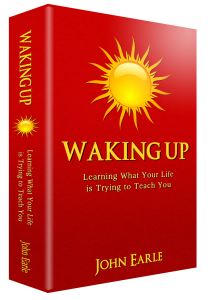There is an old joke about the equanimity of gurus. A satsangi of a famous guru is waxing eloquent to a householder about how incredibly serene and imperturbable his guru his. Finally the householder says, “He sounds amazing. I just have one question: is he married?”
You may have noticed that many gurus don’t have a partner, a person familiar with their behavior who challenges their ego on a daily basis. Intimate relationship is perhaps the most difficult and rewarding spiritual path we can follow. Forget living in a cell or a cave! If you have ever been in an intimate relationship you know how challenging this path can be. But, once we understand how to use relationship as a spiritual path, it can also be the fast lane to personal and spiritual growth.
Relationship is the favored playground of the ego. As such, it provides many opportunities for denying the ego and opening the heart. Unfortunately, many of us do not get this. We don’t see the spiritual gift. We don’t take this great opportunity to practice the most magnificent spiritual gesture.
Rumi’s poem Ali in Battle gives us a view of how this gesture works:
ALI IN BATTLE
Learn from Ali how to fight
without your ego participating.
God’s Lion did nothing
that didn’t originate
from his deep center.
Once in battle he got the best of a certain knight
and quickly drew his sword. The man,
helpless on the ground, spat
in Ali’s face. Ali dropped his sword,
relaxed, and helped the man to his feet.
“Why have you spared me?
How has lightening contracted back
into its cloud? Speak, my prince,
so that my soul can begin to stir
in me like an embryo.”
Ali was quiet and then finally answered,
“I am God’s Lion, not the lion of passion.
The sun is my lord. I have no longing
except for the one.
When a wind of personal reaction comes,
I do not go along with it.
There are many winds full of anger,
and lust and greed. They move the rubbish
around, but the solid mountain of our true nature
stays where it’s always been.
There’s nothing now
except the divine qualities.
Come through the opening into me.
Your impudence was better than any reverence,
because in this moment I am you and you are me.
I give you this opened heart as God gives gifts:
the poison of your spirit has become
the honey of friendship.*
Like Ali’s battle, intimate relationship constantly provides the opportunity to make his magnificent gesture – letting go of the ego. When we give our heart away to another for safe keeping, and they take advantage of our vulnerability, our ego gets very angry. It is hard for us to see that they are often simply acting out their own ego! But, using awareness, we can see when our ego arises and we can use the pause that changes everything to choose to open the heart. This can be a real stretch, but it is the supreme gesture. Sometimes we will have to do a great deal of personal work to get to this place, removing the obstacles to love, but the goal is worthy. Perhaps we will be able to say like Ali, “When a wind of personal reaction comes, I do not go along with it.”
Relationship is also very useful for making discovery about our own hidden fears and dysfunctional beliefs. Sometimes these lie so close to our way of being that we can’t even see them. We need someone to point them out to us. As much as we hate to admit it, our partner is sometimes right about an unskillful pattern of behavior. For the sake of consciousness, we need to consider their every accusation to see if there is a grain of truth, a jewel of learning hidden within it, rather than just letting the ego blindly deny any questioning of our behavior. If we practice this sifting process over time and learn to admit culpability when it is clear, we become easier to be with and then, if we are lucky, the wise person inside our partner will feel safe to gently show us a better path and our personal growth accelerates.
Who knows? Over time, using our relationship as a spiritual dojo for choosing the heart before the ego, we too may encounter “The solid mountain of our true nature.”
* Barks, Coleman with Moyne, John, The Essential Rumi. Castle Books 1997, page 223



 Using four, powerful but simple strategies, learn what the challenging stories in your life are trying to teach you.
Using four, powerful but simple strategies, learn what the challenging stories in your life are trying to teach you. 


No comments yet.